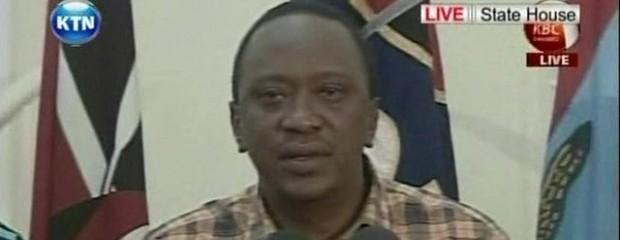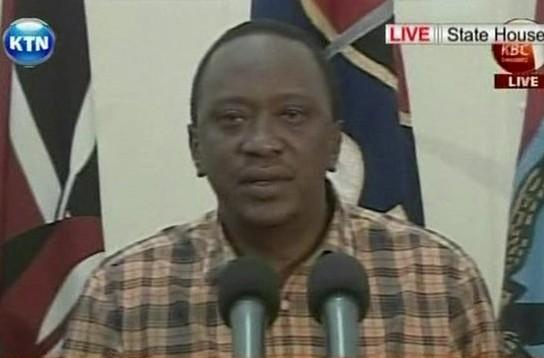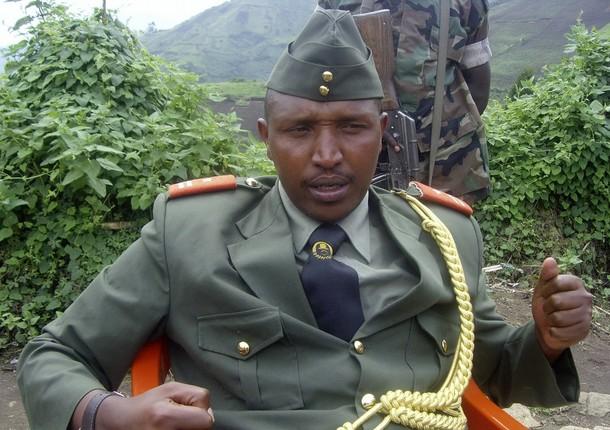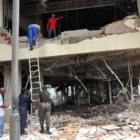After Westgate: Uhuru Kenyatta must still go to The Hague – By Edward Clay

Richard Dowden’s last point in his blog posted on 27 September – that the Westgate massacres will spell the end of the International Criminal Court (ICC) – should not pass without challenge. Behind his prediction lies an argument often used before, eg during the Cold War, to justify support for or tolerance of poor governments and poor governance. Some infamous previous events in Kenya have accordingly not been resolved. Following the horror at Westgate, some seem to think a choice must be made between bolstering Kenya in its fight against terror and letting off its President and his deputy from their cases at the ICC.
The victims of Westgate and the bereaved (including the country’s President) deserve every sympathy, and so does Kenya in a bleak hour. Equally, early and rigorous inquiries are required into the events and matters arising.
Appalling as Westgate and earlier terrorist attacks were, a larger loss of life arose from the post-election violence in 2007-8. Comparison of numbers in no way diminishes or belittles the pain and loss of any single victim and loved ones in any of these crimes.
But we have to remember the facts. After the 2007 election, 1,100 died and over 600,000 were terrified into fleeing their homes. The impact was widespread among the Kenyan populace.
The ICC took on the most serious ensuing prosecutions because the Kenyan government could not take up the invitation to do so. The cases cannot simply now be undone by will of the Kenyan parliament or disapproval of the African Union.
The President is constitutionally bound to ensure Kenya honours its obligations to the ICC as to its other international commitments. He has said he will. Doing otherwise will mean breaking the letter and spirit of the new Kenyan Constitution.
For its part, the Court has shown itself sensitive to Kenya’s present plight in dealing with Vice-President Ruto’s request to be allowed home to help with the aftermath.
Making the tragic events at Westgate a justification for leaving totally unresolved the cases placed before the ICC will, however, dishonour the victims of both horrific episodes.
An effective counter-terrorism strategy needs broad public acceptance, trust and support. Kenya’s foreign friends should support the country’s leaders and parliamentarians in turning their outrage over Westgate into a determination to protect Kenya’s declared values. These include upholding international norms, protecting the rights of its citizens and resolving all abuses of them, against corrosion from internal or external sources.
Sir Edward Clay is former British High Commissioner to Kenya, Uganda and non-resident Ambassador to Rwanda and Burundi.








Indeed, because of Kenya’s ‘strategic importance’, Uhuru/Rutos’ ICC trial must continue, more so in view of the bungled rescue process (notwithstanding the heroism of the forces that saved people) by Uhuru’s government .
I agree with Edward Clay’s opinion. Of great concern in recent history is the West’s tendency to support any regime, including violent autocratic ones run by war criminals, when it is fighting Islamists. The premise is that my enemy’s enemy is my friend, reminiscent of the Kirkpatrick Doctrine of the Cold War era. It is not a position based on ethics or with a goal of liberty and prosperity for all.
Before Westgate, aside from kidnappings in border areas, Al-Shabaab kept its jihad largely confined to Somalia; it is not the only violent group in Somalia, by any means, but the most prominent of those based on Islamist doctrine. It was an foreign incursion that included Kenyan forces that internationalised Al-Shabaab’s jihad, particularly now it is losing territory. This prompted its retaliation in Kenya while seeking out an alliance that could make up for the revenue and arms it has lost, namely Al-Qaeda in the Arabian Peninsula. (A similar situation is occurring in West Africa, with the emerging alliance between Al-Qaeda in the Islamic Maghreb and Boko Haram as both groups are losing territory in counter-insurgency operations)
The solution to this conflict is not easy to reach, but supporting Kenyatta in the name of stability and security when he has more Kenyan blood on his hands than the jihadists at Westgate would be a grave error of judgment. The West should desist from creating more violent dictators, who create yet more problems. No more Musevenis.
Life is very complicated for Mr Kenyatta at the moment. If he is to survive, he might need to pull some rabbits out of a hat.
First, he’ll have to survive the ICC – for even with the rumours that witnesses have disappeared or, under duress, have withdrawn their willingness to testify – there may yet be the occasional person willing to risk testifying at the ICC. [All this, of course, begs the question of the witness protection systems that the ICC has in place.]
Second, he has the mess of the Westgate Mall to deal with. Many questions need to be answered; if there’s any truth to the rumours, those answers will be distinctly unpalatable. This will inevitably mean that the people responsible for orchestrating the messy response and looting will have to be held to account. If this actually takes place (and there’re many reasons to expect that it will not), those people might feel betrayed which, in turn, may prompt them to reveal further information that either implicates Mr Kenyatta in the bungled response to the Westgate attackers or, perhaps, a few more witnesses for his trial at the ICC will materialize.
The disingenuous will of the Kenyan Parliament and disapproval of the African Union regarding the ICC speaks in volumes about their unwillingness to become accountable to their own people, to their “declared values†or to the world at large. We may have yet a generation to live before the “enraged populations†– as predicted by Richard Dowden – have any influence on the behaviour of the leaders in Africa. In the meantime, I expect Mr Kenyatta and his ilk to continue along the same path well trod by Mr Kenyatta’s three predecessors (including his father), “breaking the letter and spirit of the Kenyan Constitution†included.
So does that mean that you Mr. Clay have declared Uhuru guilty of the atrocities committed after the 2007 election? No one denies that people – innocent Kenya’s lost lives, limbs, homes and a lot more during that period. Either way, the biggest injustice is that those that lifted a machete to chop off their neighbours neck or lit a match to set anothers house on fire are still walking free…… and will possibly do it again. I doubt any of the ICC witnesses will be testifying that the saw Uhuru, Ruto or Sang doing those things.
While the cases should continue, your writing above seems to suggest that its a formality to confirm what you already know.
Tosh: by no means. Resolution in my book means settling the issues one way or another. I know no more than you do. But if the cases were worth mounting in the first place, they should not be abandoned because of Westgate.
Edward Clay
I do not buy this argument from Edward Clay. Trying to link Westgate and weave a convoluted line that Uhuru may want to use this to skip the Hague trials is absurd. Kindly cut the President a break. He has his challenges, kindly let him face them. This is a tad patronizing, but again, its link vomiting on your shoes though you did not tell us then that it had to do with contracts for Land Rovers…
Whatever one’s opinoin about Westgate it has nothing to do with the charges in front of the ICC, and for Richard Dowden to suggest otherwise is incomprehensible to me. What is the connection? Does he see one? I for the life of me can not. This is why Edward Clay makes a connection – because Richard Dowden did so himself. Let things be treated on their own merits, and not on their comparative merits…otherwise after the Holocaust, everything seems fine. This is not so.